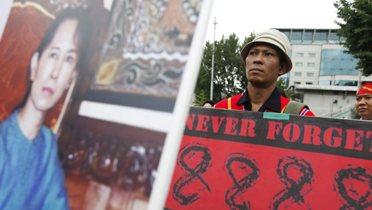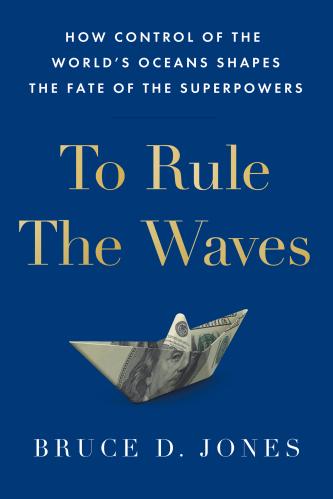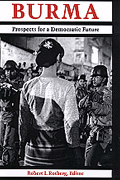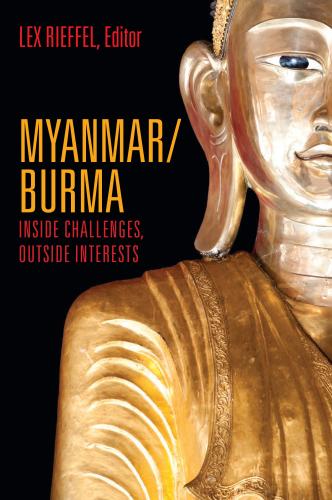President Teddy Roosevelt is famous for his policy dictum, borrowed from an African proverb, “speak softly and carry a big stick”. On the issue of Burma, the Bush administration is speaking loudly and creating anxiety in Asia about using its big stick. Following an Asian path is likely to be a more effective way of promoting positive change in Burma.
The military regime that came to power in Burma/Myanmar in 1962 has an appalling record of poor governance. While it has maintained a modicum of stability in this fractious nation, it has stifled economic growth and allowed the quality of life for its citizens to fall sharply relative to those of its most important neighbors — China, India, and Thailand.
The generals ruling Burma gained unwanted attention in September when they cracked down on a protest movement in which Buddhist monks played a prominent role. Their heavy-handed response yielded the first statement from the U.N. Security Council condemning the actions of the Myanmar government as violations of the United Nations’ norms of behavior.
The U.N. statement, quite naturally, reflected a compromise between hawks who believe “sticks” are the right way to promote positive change in Burma, and doves who believe “carrots” are the right way. The United States has been leading the hawk faction ever since the violent suppression of the democratic movement that emerged in 1988, led by Aung San Suu Kyi (later awarded the Nobel Peace Prize).
Burma was not one of the three nations forming the “Axis of Evil” proclaimed by President George W. Bush in his State of the Union address in January 2002. But it was one of the six “outposts of tyranny” listed by Condoleezza Rice during her confirmation hearings to become secretary of state three years later.
Why is a superpower like the United States beating up on a nanopower like Burma? Is this a smart way to bring prosperity to the 50 million citizens of Burma who have suffered for two generations?
The sad fact is that the moral authority of the United States on global issues has been slipping since the end of the Cold War and has plummeted since we intervened in Iraq on the grounds of removing the threat of weapons of mass destruction. Moreover, the Bush administration is so preoccupied today with Iraq and Iran that is incapable of providing effective leadership on issues such as Burma that are peripheral to the concerns of American taxpayers and voters.
The biggest contribution the United States could make now is to support the initiatives emerging from the Asian countries that are most directly bearing the costs in various forms of the turmoil in Burma. Here is a case where the United States can lead best by following others.
Two critical opportunities are on the horizon:
(1) The leaders of the 10 ASEAN countries will hold their next summit meeting Tuesday and Wednesday in Singapore. It is shaping up as a historic meeting because the leaders are expected to sign a new “ASEAN Charter” with provisions on respecting human rights that go far beyond existing obligations of membership. These provisions are not easy for the Myanmar government to accept, but the Charter will not go into effect unless all 10 members sign it. Pressure from the U.S. government that discourages Myanmar from attending the summit and signing the Charter will not only set back cooperation and integration in the ASEAN community but will damage U.S. relations with Asian countries generally.
(2) When he was in Sydney for the APEC Summit at the beginning of September, President Bush invited the ASEAN leaders to meet on his ranch in Texas to make up for having to back out of a scheduled U.S.-ASEAN meeting later that month because of congressional hearings on Iraq. This invitation has presented ASEAN with a dilemma. It appears politically impossible for Mr. Bush to entertain the leader of Burma, Gen. Than Shwe, at his ranch. And it is impossible for the nine other ASEAN leaders to participate in a meeting that excludes Burma without violating a fundamental principle of ASEAN cooperation.
It is important for individual American citizens, and nongovernmental organizations campaigning for humanitarian causes globally, to express outrage over the brutal behavior of the Myanmar regime and to feel impatient about the Asian approach to the problem. However, it is useless and even counterproductive for the U.S. government to now attempt to instruct the Asian countries on how to bring security and prosperity to the wrongfully impoverished citizens of Burma.










Commentary
Op-edThe Asian Path Toward Helping Burma
November 19, 2007